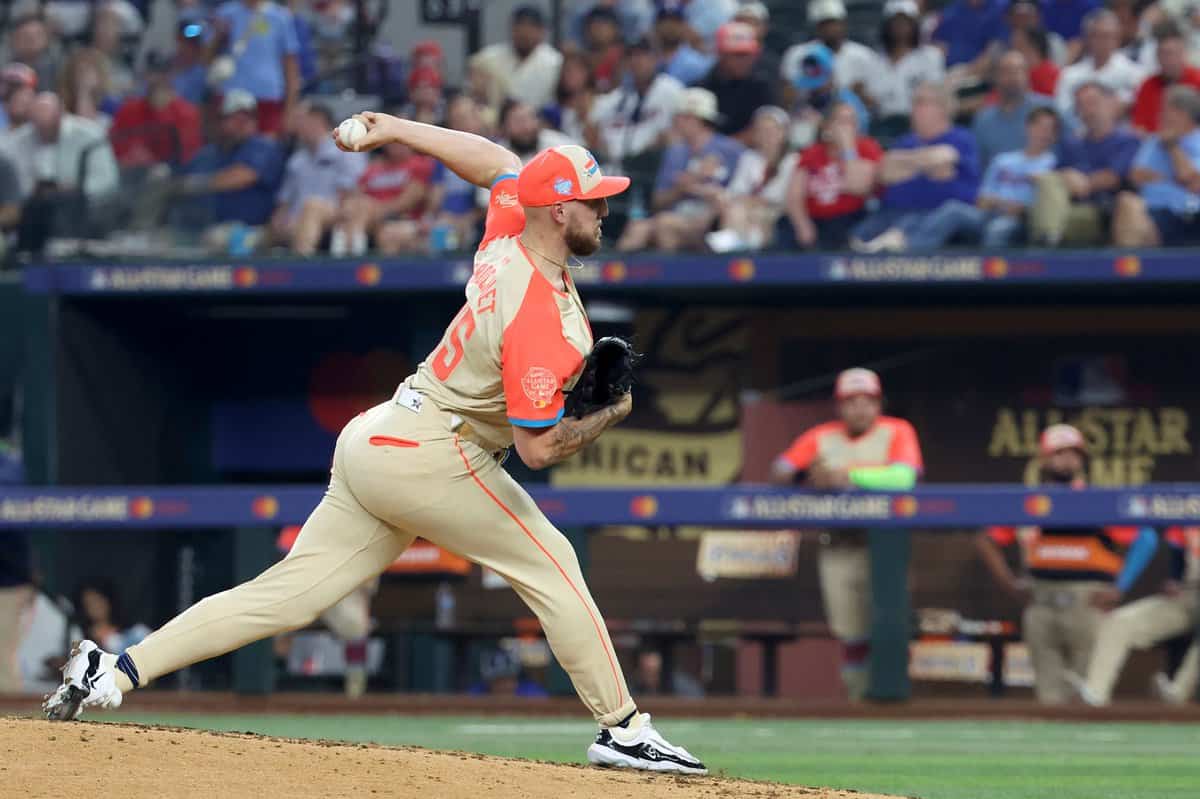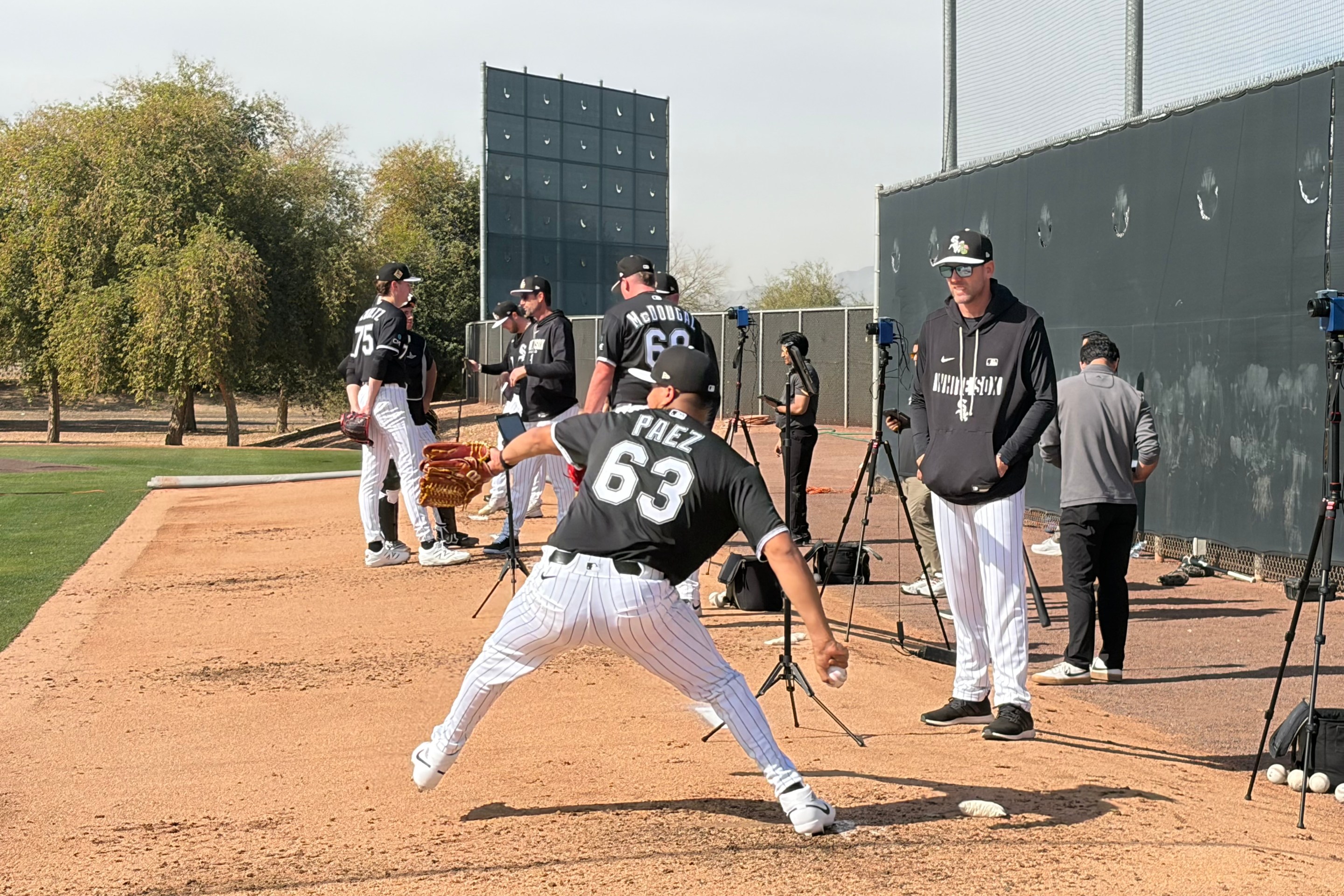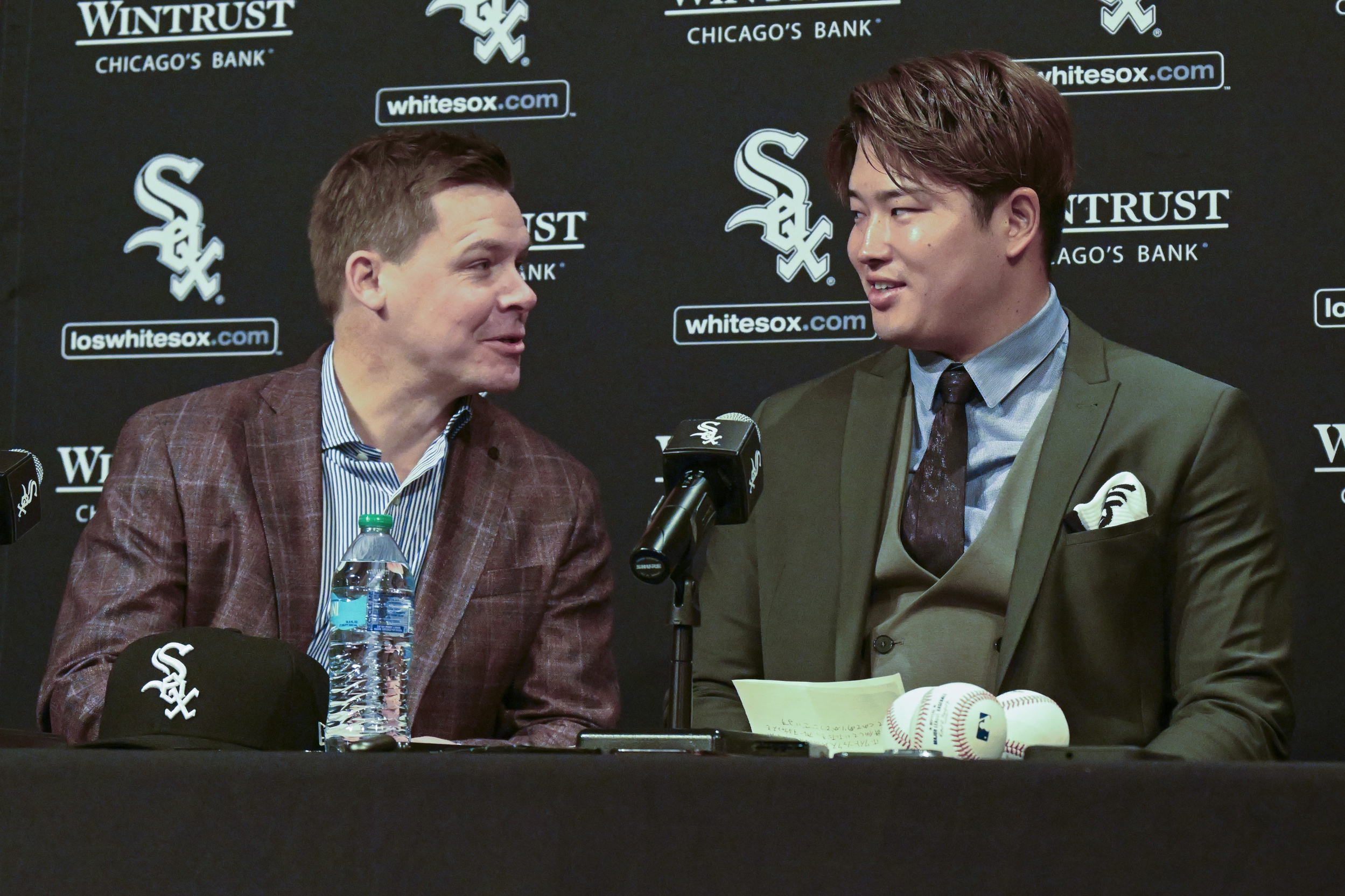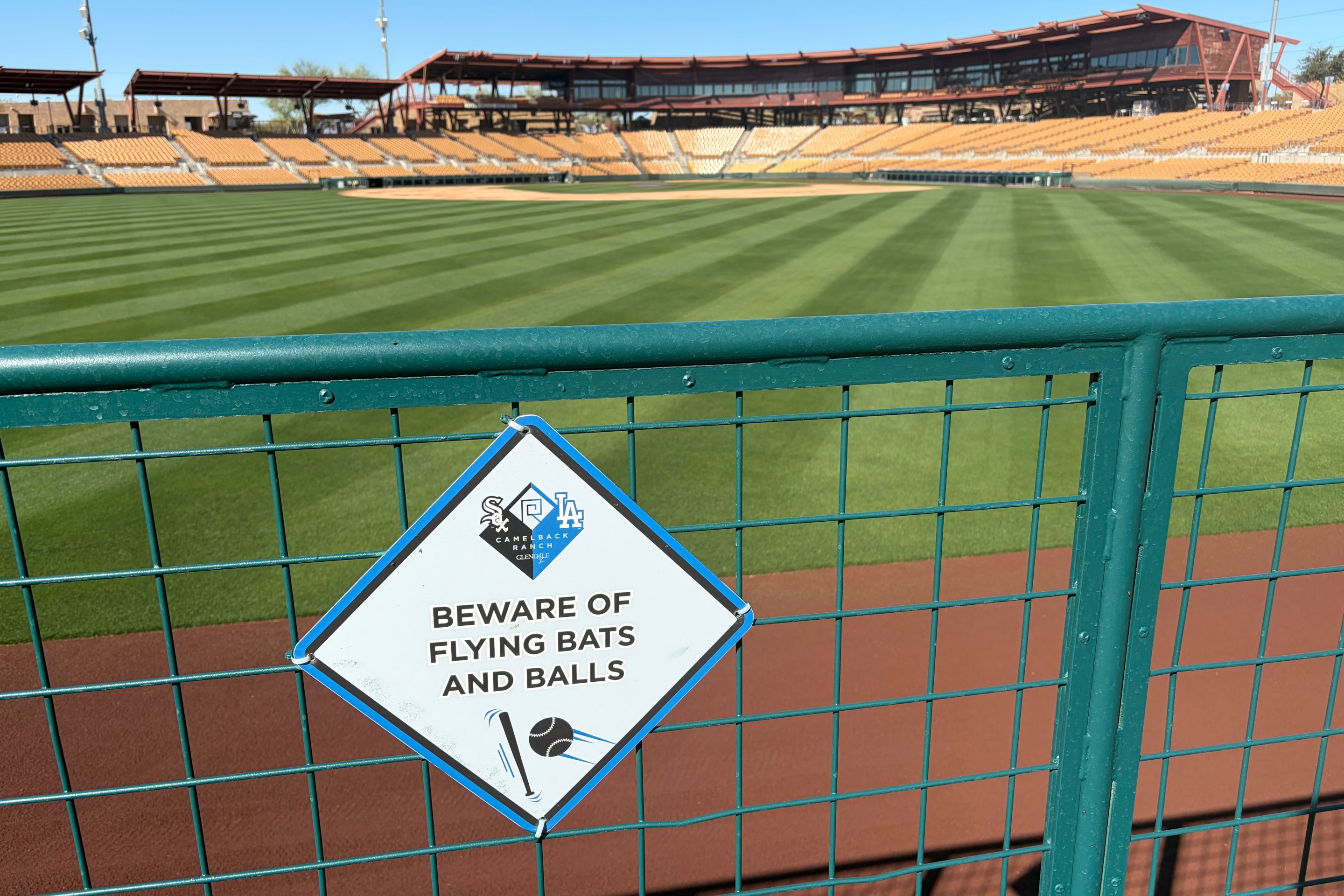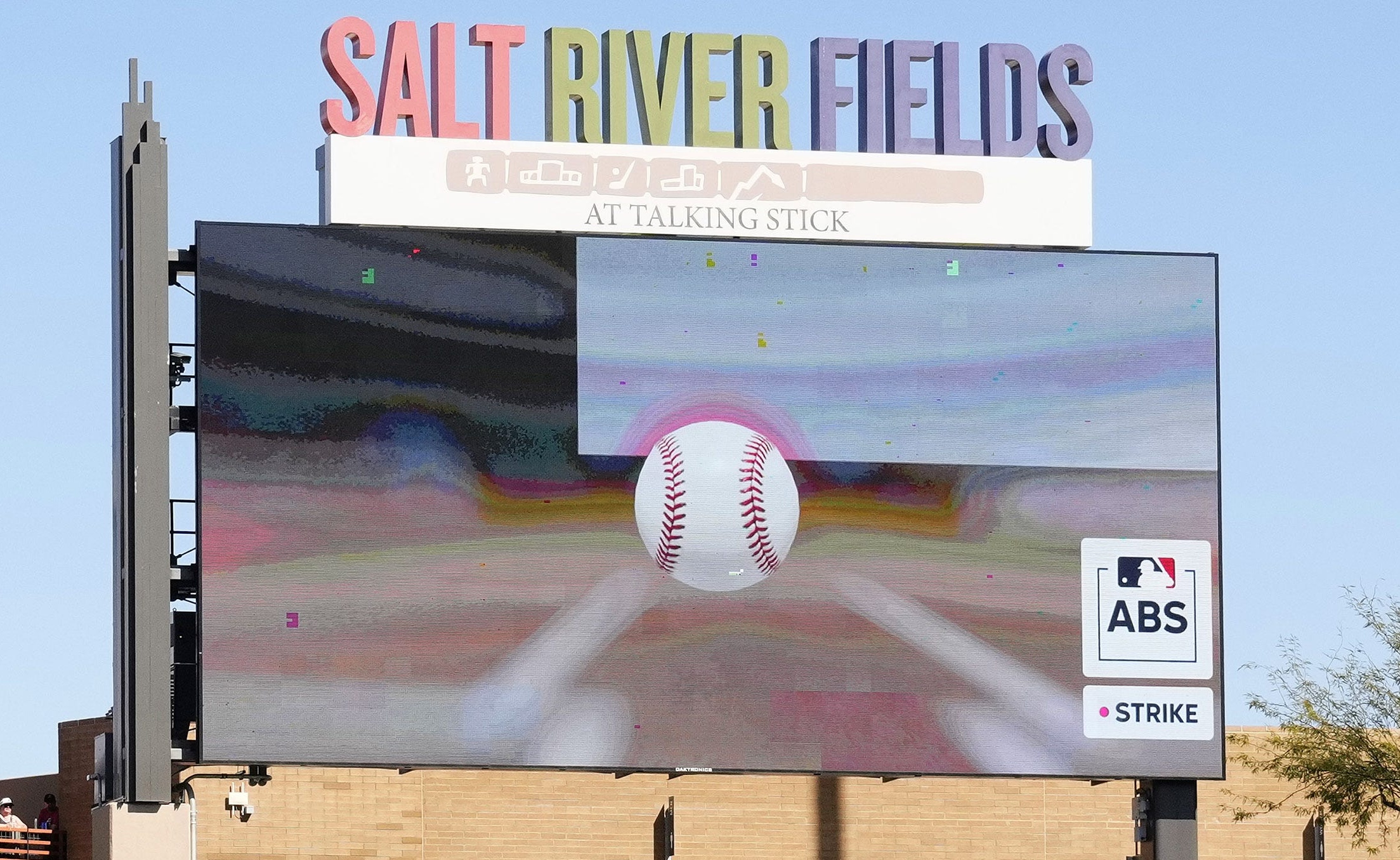Garrett Crochet wasn't going to make or break his trade value with his All-Star Game performance, at least in situations where he was able to see his outing all the way through, and leave the field without a trainer escort.
But it was still a relief to see him throw a scoreless fourth inning at Globe Life Field on Tuesday, just because it was a nice thing, and the White Sox haven't allowed many of those things to exist. Crochet threw 12 of 18 pitches for strikes, averaged 98 with his fastball, and got a strikeout around three grounders. One of them bounced through the right side for a single, but to no ill effect.
If Crochet makes a next appearance with the White Sox, it'll come in that very same ballpark, as he's slotted to face the Rangers in Arlington next Tuesday. Perhaps he packed enough clothes to stay the whole time, although with the draft in the rear view mirror and attention turning toward the trade deadline, he probably should have a "go bag" ready regardless.
Spare Parts
The White Sox used to regularly finish in the top 10 in this reader poll when Jason Benetti and Steve Stone were calling their games, but the John Schriffen-Steve Stone pairing finished dead last. Meanwhile, Benetti helped the Tigers rocket from 30th to 10th, although the creepy allegations against analyst Craig Monroe probably put a cap on further enthusiasm for the time being.
On one hand, the ranking feels fair, or close enough to it. On the other, the White Sox received the second-most votes, and given that the White Sox never receive the most votes for anything, it suggests that AA's coverage of Schriffen's weirdest moments probably made it impossible to get a fair trial with the jury.
The American League and National League All-Star teams have worn distinct event-specific uniforms, rather than the individual players' own home or away look, for the last four years as part of the Nike deal. With Nike producing its worst look yet, Rob Manfred has softened his stance on his rejection of tradition. He should. The American League's uniforms in particular looked downright dingy.
Rob Manfred is "open" to a lot of things when he's asked about various topics in a public forum, but some of them actually turn into change (the pitch clock, banning shifts, etc.), so it's interesting to hear him acknowledge that the arguments against trading draft picks aren't what they used to be, especially in a world with hard slot values. However, the below quote does tempt inviting a hold-my-beer-response:
Until now, MLB has taken the position that the risk of teams making misguided moves has outweighed the potential benefits of giving teams additional trade assets and draft flexibility. [...]
“I don’t think we have that many stupid clubs. We’ll see how it shakes out. We will go through our (collective) bargaining prep,” Manfred said. “The clubs are really sophisticated now. I do think that there’s a really good argument for allowing them to decide how to use their resources.”
Speaking of which, if you missed the rendition of "The Star-Spangled Banner" before the Home Run Derby, you certainly missed something.
I figure she'd blame an illness, a faulty in-ear monitor, or maybe both, so, "I was drunk last night" is refreshingly straightforward. Andress' statement including the line "I'm checking myself into a facility today to get the help I need," ended the saga on a more serious note.
Jim Leyland will be thanking the White Sox when he makes his Hall of Fame induction speech two Sundays from now, because he cites his experience of being a third-base coach under Tony La Russa for making him believe he could manage. Tyler Kepner explains how the White Sox were briefly an incubator for young coaching and front-office talent in the early 1980s under the guidance of Roland Hemond.
The Comedy Central online archives were taken offline by Paramount as part of a cost-cutting measure, which makes you realize how fragile the entire concept of online archives are, at least when they're not in the hands of a non-profit or governmental institution.
